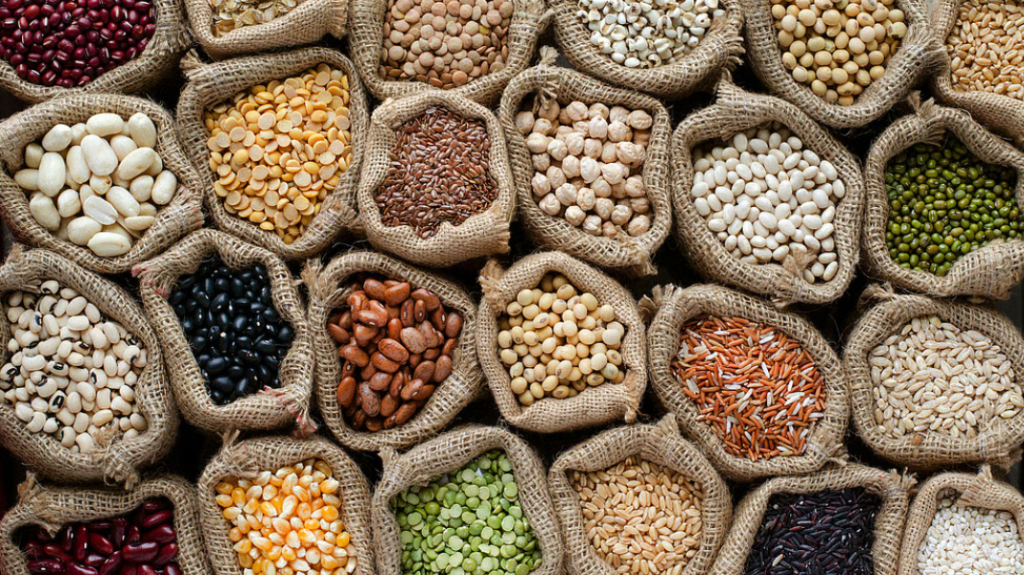
By Deborah Olaoluwa
The Technologies for African Agricultural Transformation (TAAT) and partners led by the International Institute of Tropical Agriculture (IITA) will play a leading role at the 11th African Grain Trade Summit (AGTS), taking place in Zanzibar, Tanzania, from October 1–4, 2025.
Through its strategic partnership with the Eastern Africa Grain Council (EAGC), TAAT and IITA will showcase scalable solutions designed to tackle Africa’s most pressing grain market challenges.
The long-standing collaboration, formalised through a Memorandum of Understanding, combines IITA’s agricultural research expertise with EAGC’s extensive network of millers, traders, processors, and policymakers. Together, they are creating a platform that translates research into real-world impact across the continent.
“Our partnership with IITA and TAAT demonstrates the Summit’s core value of turning knowledge into action. By showcasing scalable technologies, we are bridging the gap between research and markets, ensuring that Africa’s grain sector is not only resilient but also competitive and inclusive. This collaboration reflects the very essence of the 11th AGTS, convening science, policy, and business to drive real transformation for farmers, traders, and consumers across the continent,” says Gerald Masila, Executive Director, Eastern Africa Grain Council.
Dr Solomon Gizaw, head of the TAAT Clearinghouse, avers that the partnership is a win-win for food systems transformation in Africa. “ Through our work with country governments, the private sector and international financial institutions, TAAT is scaling innovations for building robust, adaptive, and sustainable grain markets that can withstand shocks, meet growing demand, and ensure food security for the continent,” Dr Gizaw added.
Driving Innovation Under a Shared Agenda
Holding under the theme “Resilient grain markets: Unlocking Africa’s food security potential,” the summit will highlight persistent challenges, including fragmented value chains, post-harvest losses, food safety concerns, poor infrastructure, and limited access to finance.
TAAT and IITA will use the platform to advance its “Scaling for Impact” initiative, linking research-driven technologies with private sector leaders capable of taking them to scale, while also strengthening existing partnerships.
“Scaling for impact means moving beyond research to real change in the lives of farmers and communities. By working together to improve soil health, food safety, and resilience, we can unlock Africa’s potential to feed itself and thrive in the face of climate challenges, “Jane Kamau, the Scaling & Agribusiness Specialist at IITA said.
TAAT experts and scientists from IITA will highlight perspectives on Food Safety Leadership, Grain quality and food safety, harmonising standards and combating aflatoxins for competitive trade, Integrated Aflatoxin Management, addressing one of Africa’s most critical food safety and trade barriers, and Productivity Innovation, the TAAT e-catalogs and efforts at providing private enterprises with access to CGIAR technologies that promote climate-smart practices.
Other areas of intervention by experts include Financing Grain Markets and strategies to de-risk investments and encourage private sector growth, from Research to Market Pathways, insights on scaling agricultural innovations through private sector partnerships and underscoring pathways to commercialisation.
From e-catalogs to Aflatoxin Risk Early Warning System(A-EWS)
At the Innovation Exhibition, TAAT and IITA will spotlight the Aflatoxin Risk Early Warning System—a GeoAI-powered model which combines satellite data with machine learning. The system predicts aflatoxin risks in several crops, including maize, and guides timely interventions to minimise contamination. Live demonstrations will illustrate how advanced data-driven tools can transform food safety management across value chains.
TAAT will showcase its technology ecatalogs, which comprise cutting-edge ag-technologies from developers and agricultural research institutions for agricultural value chains covering crops, livestock and fisheries. Designed for three key audiences — decision-makers in governments, the private sector, and development partners — the e-catalogs enhance the brokerage of TAAT technologies to decision-makers, empowering them to select the most suitable technology.
Partnership for Lasting Impact
TAAT and IITA’s engagement at AGTS underscores the power of their collaboration with EAGC, the recognised voice of Africa’s grain sector. By convening millers, traders, processors, researchers, donors, and policymakers, the partnership ensures that summit discussions translate into commitments and concrete action.
Together, IITA and EAGC are advancing innovative, scalable approaches that strengthen food safety, resilience, and sustainability in Africa’s grain markets—supporting the continent’s drive toward food security and economic growth.
“Africa’s food security depends on solutions that are both science-driven and market-ready. CGIAR and its partners are delivering innovations and decision-support tools—such as the aflatoxin risk early warning system—that provide actionable insights and scalable technologies for governments, agribusinesses, and development agencies,” Jane Kamau added.












